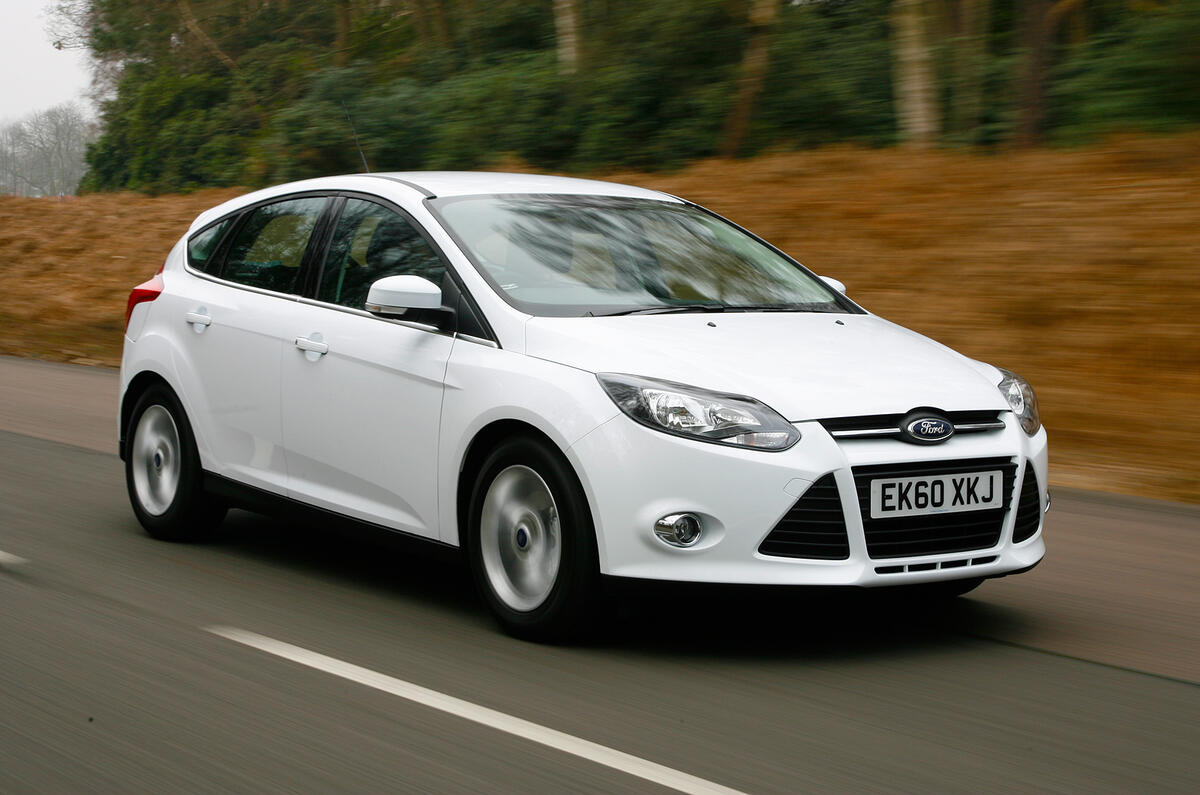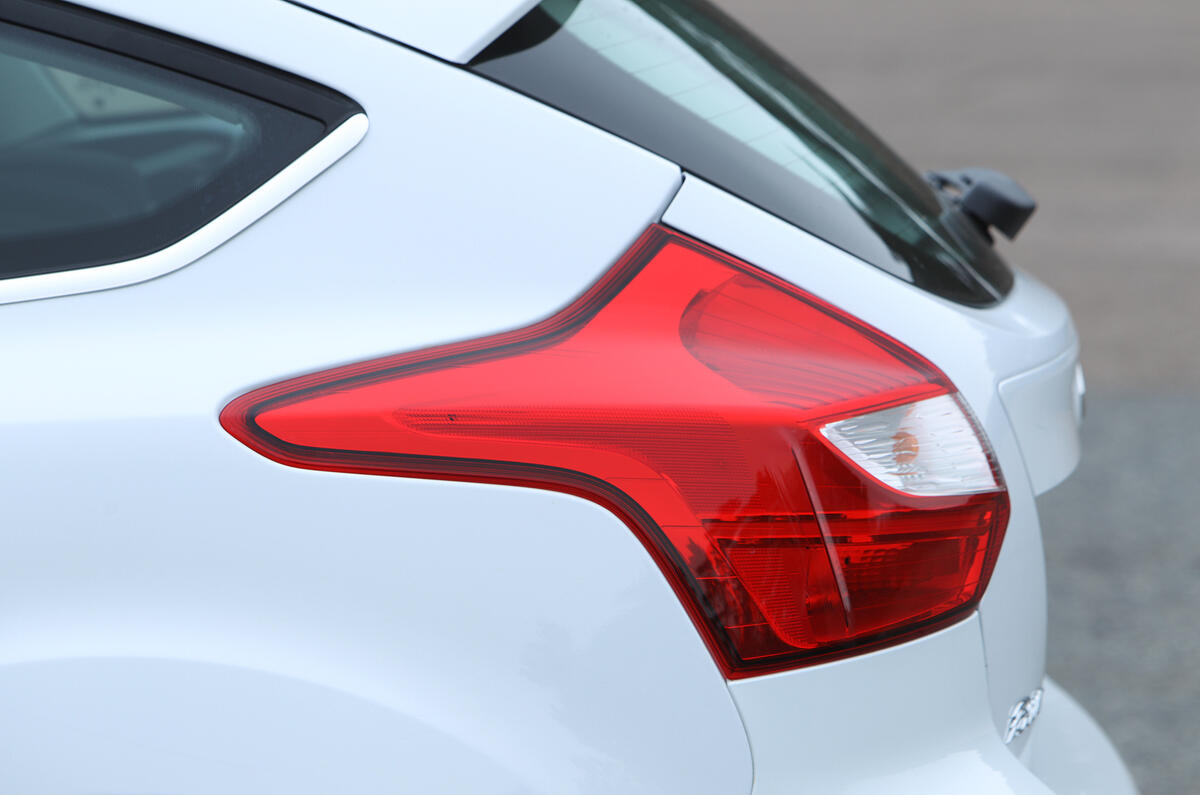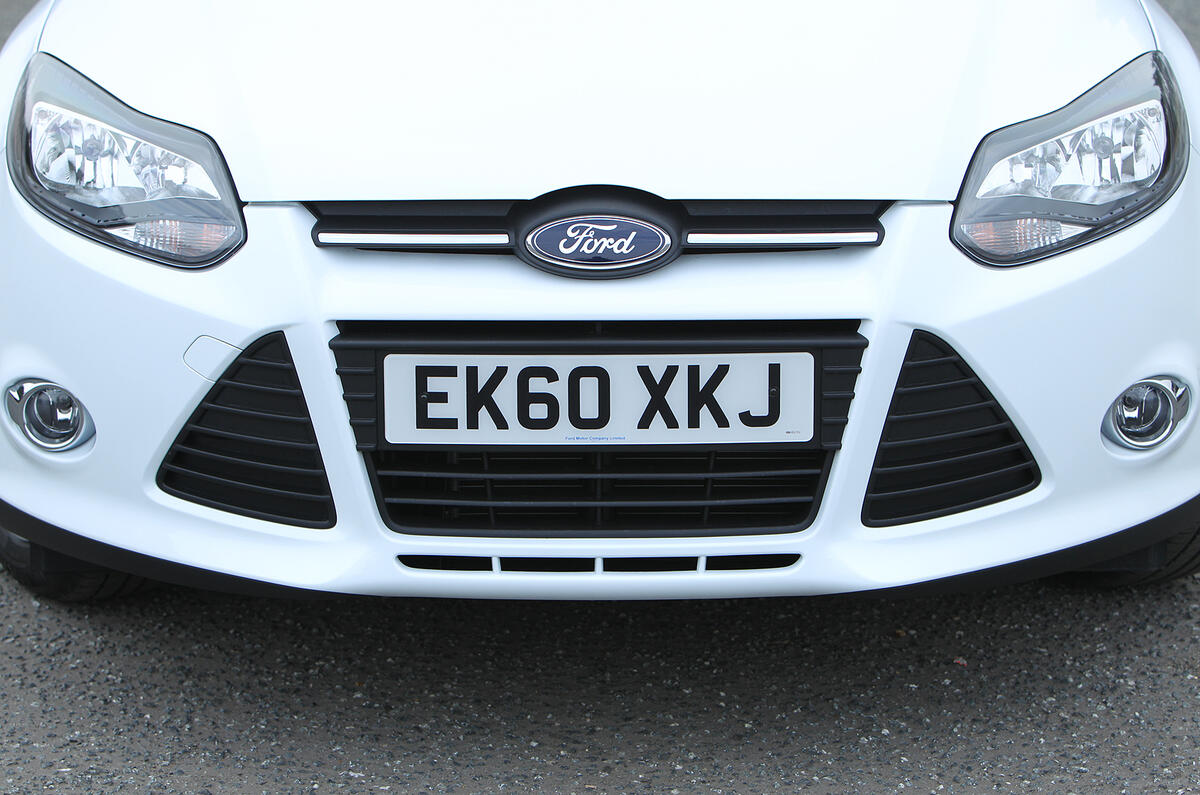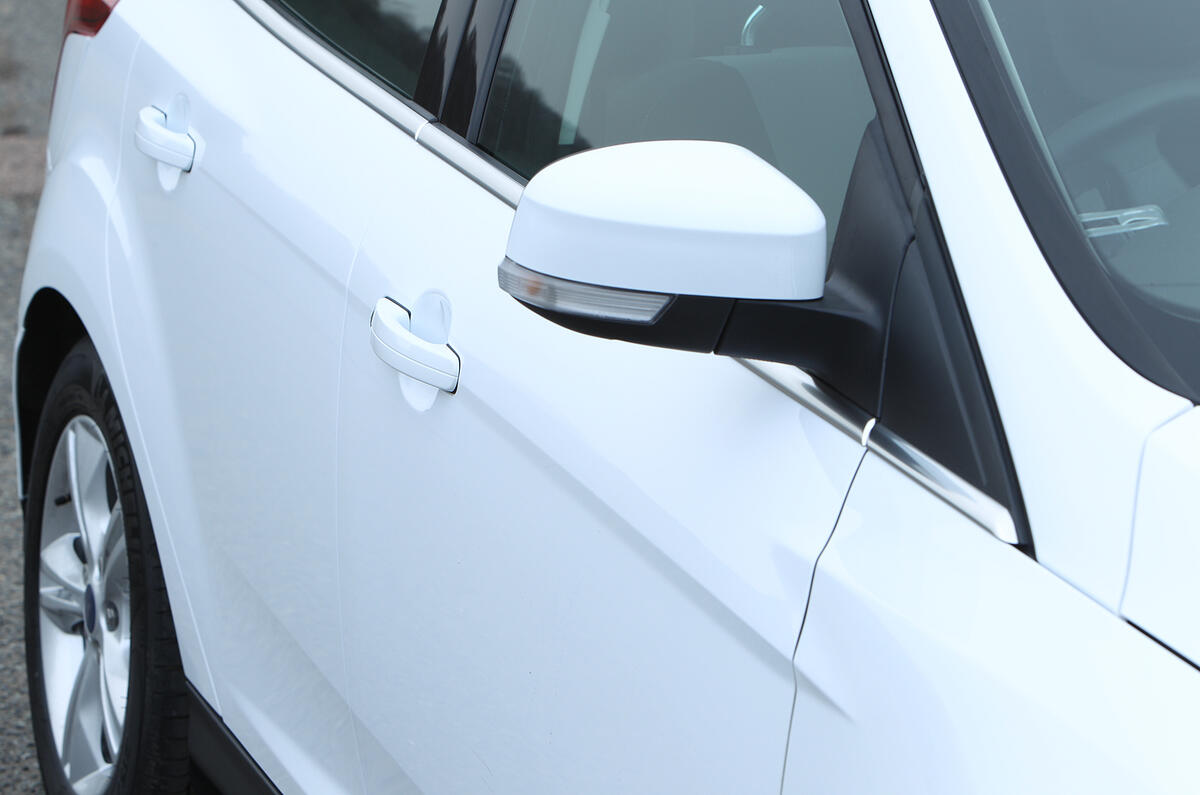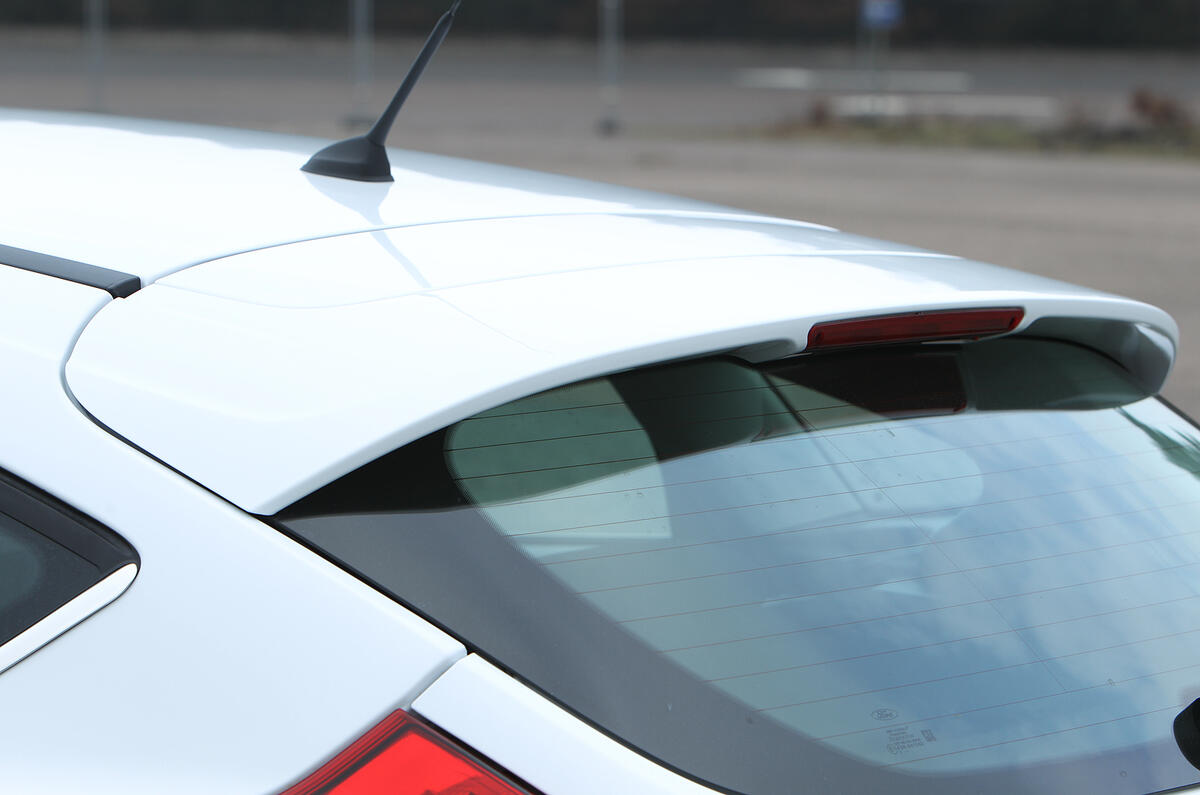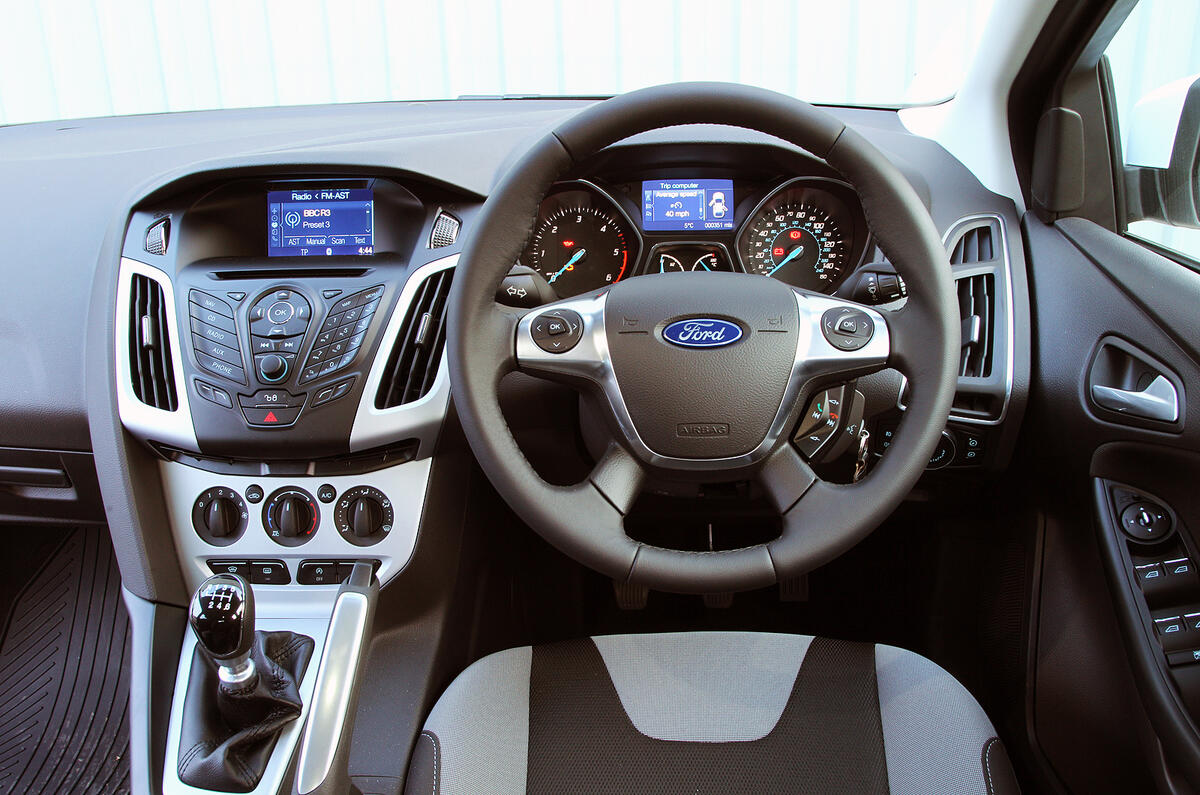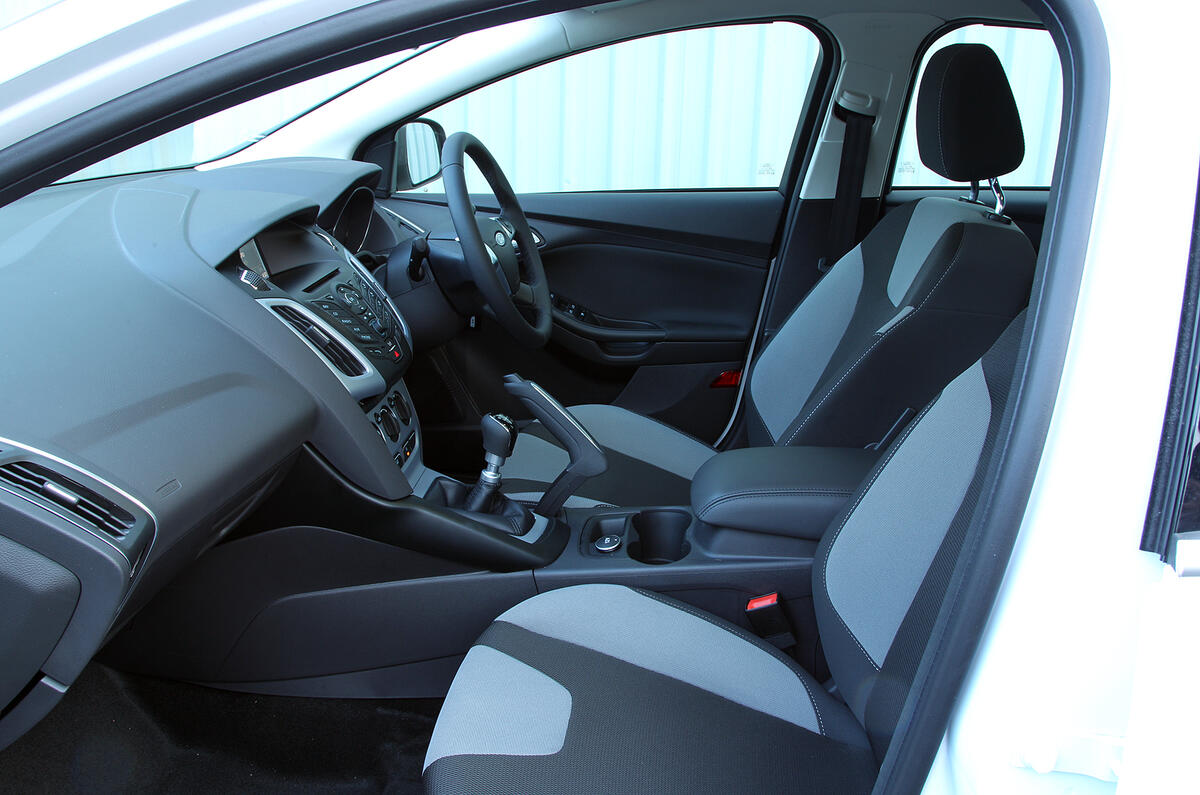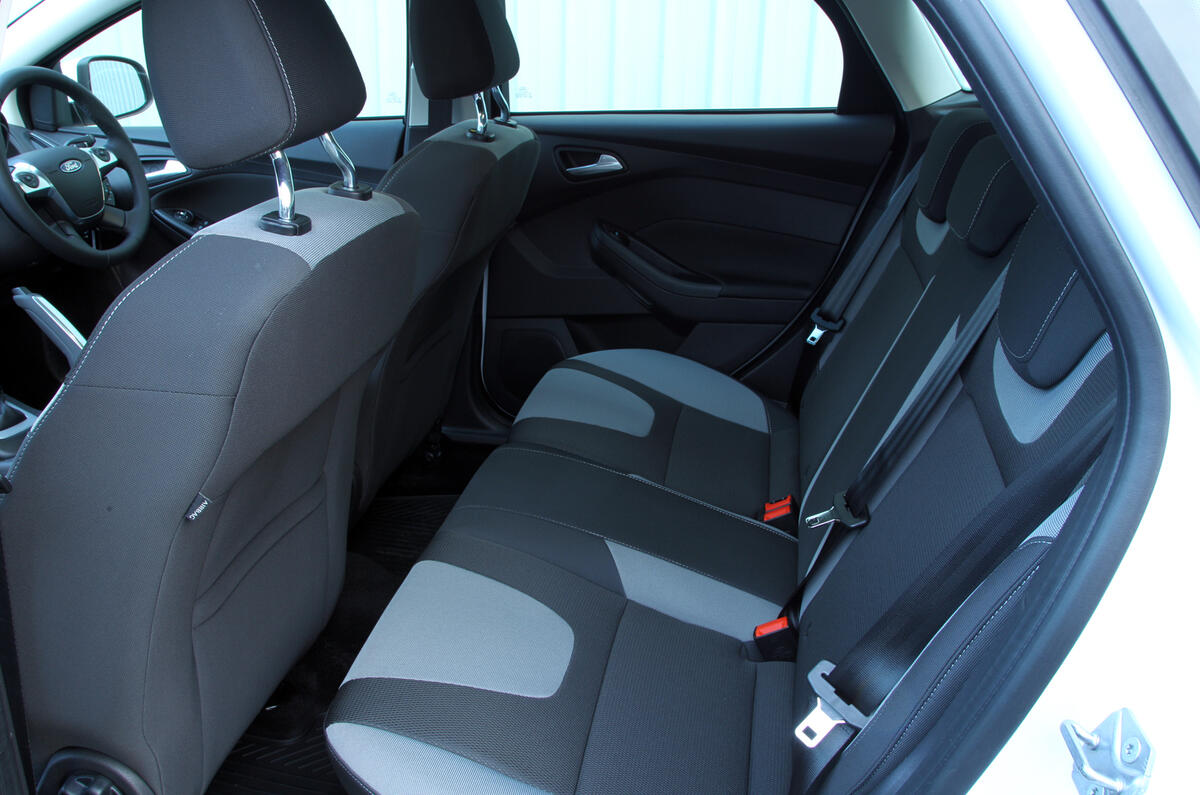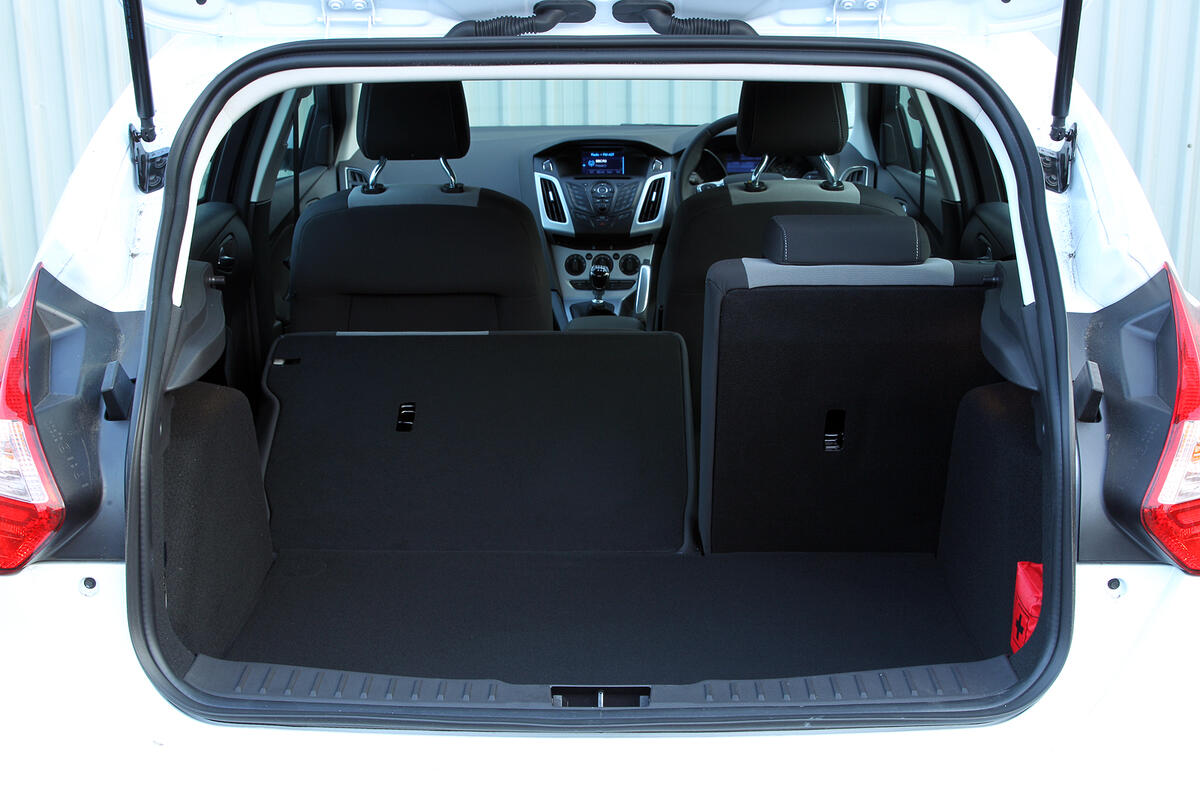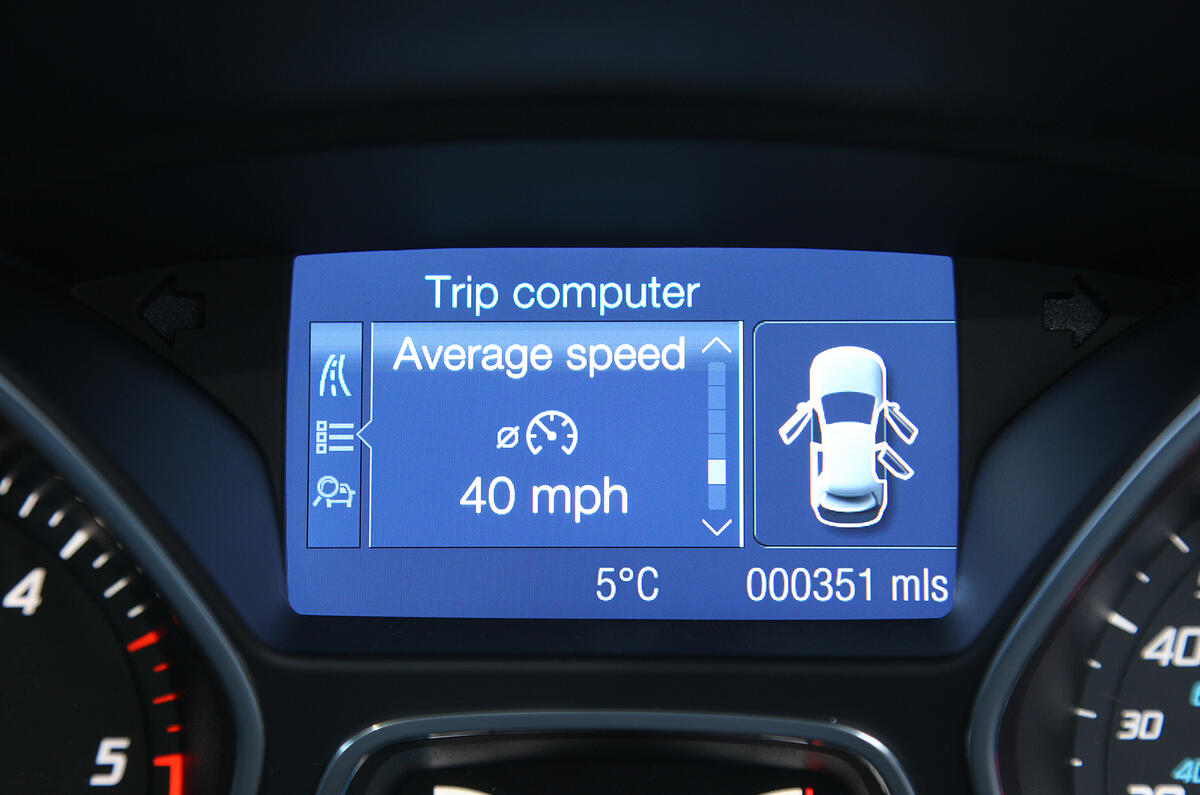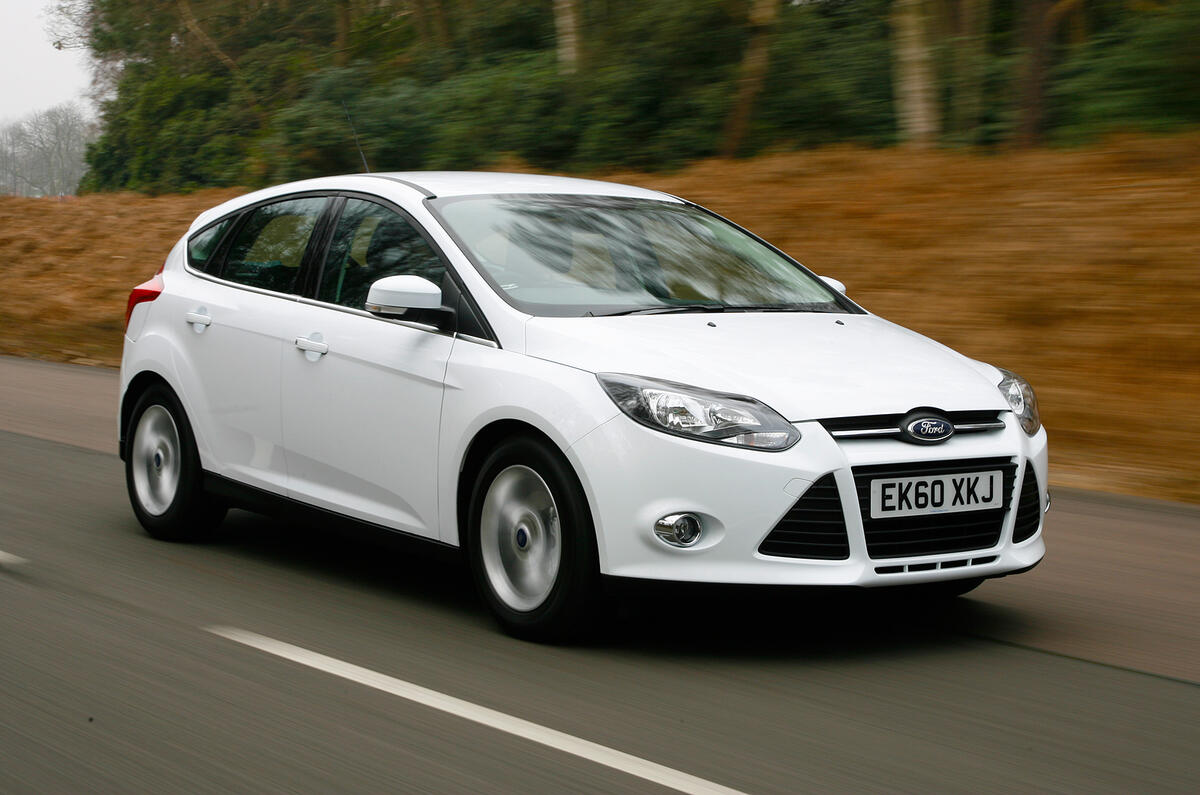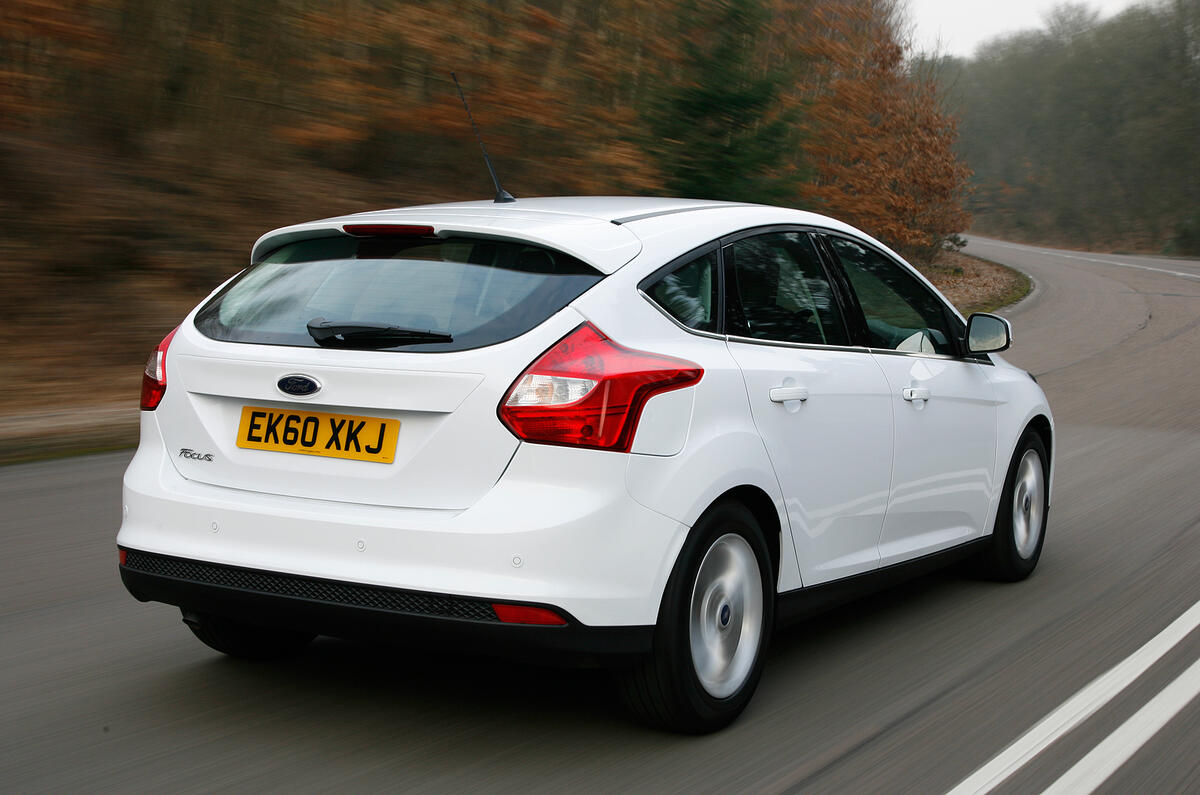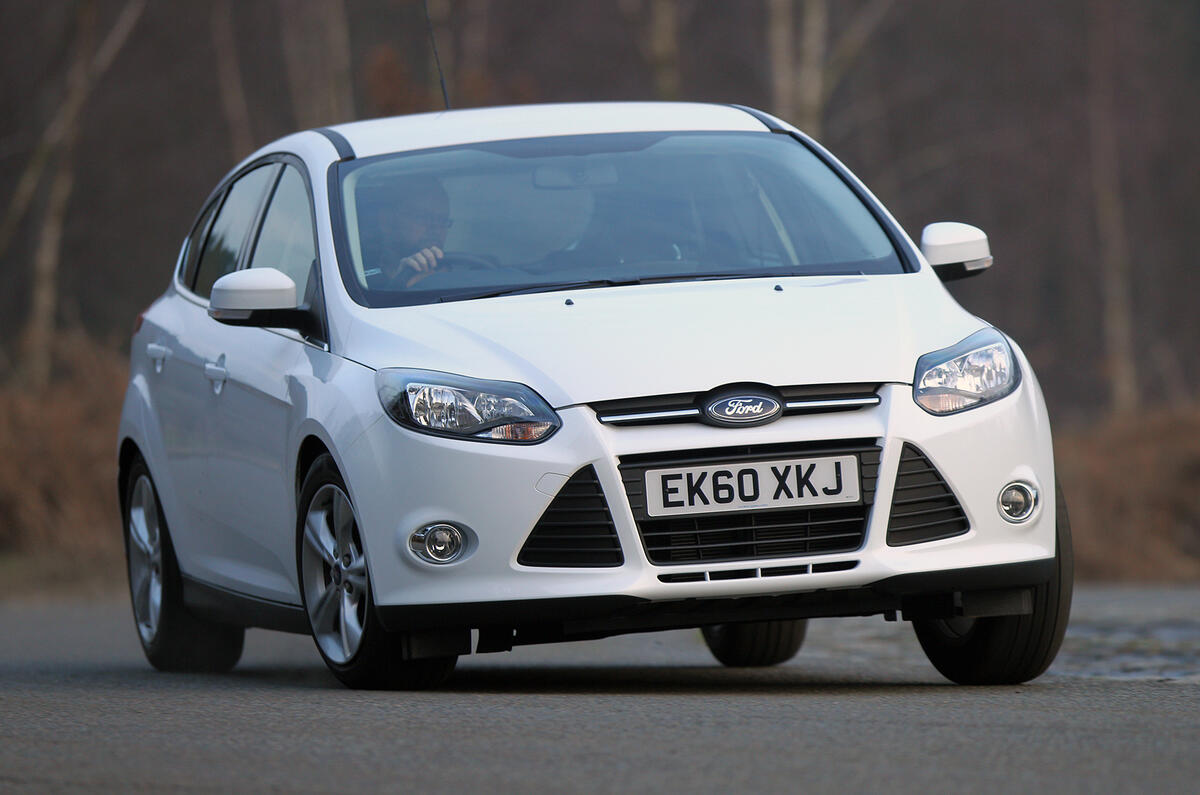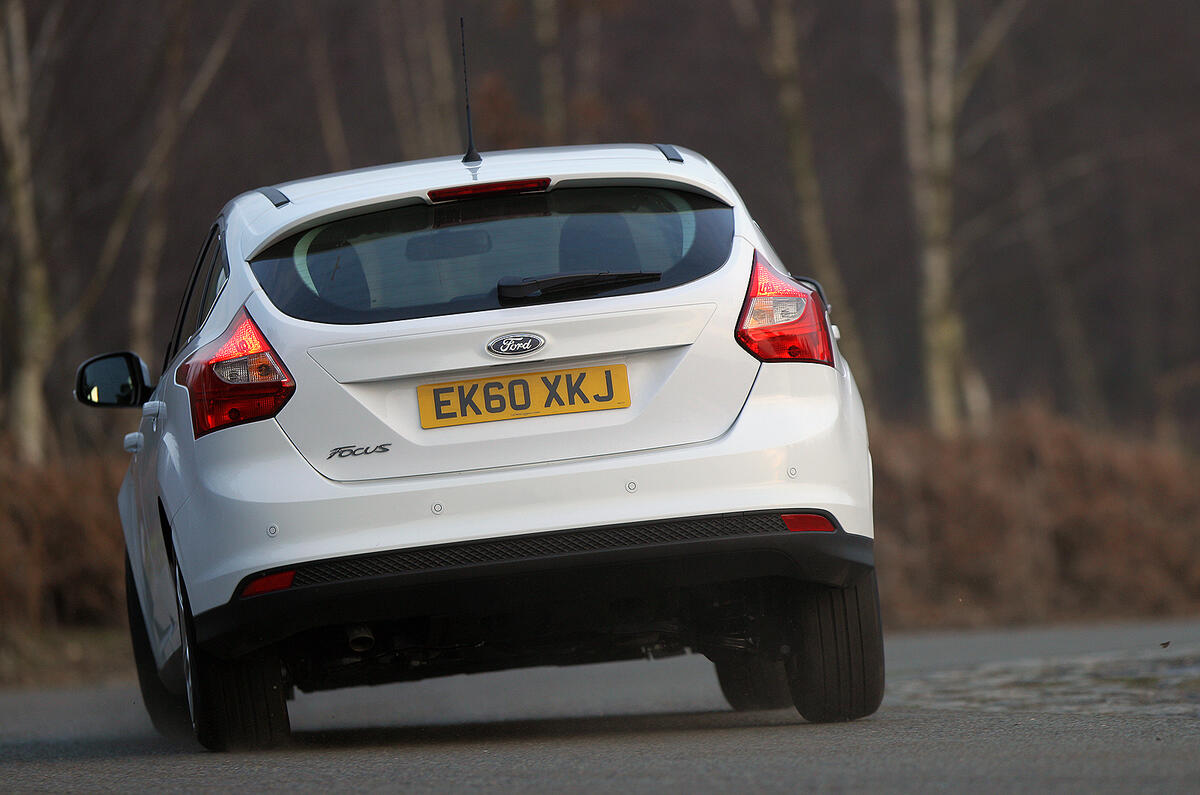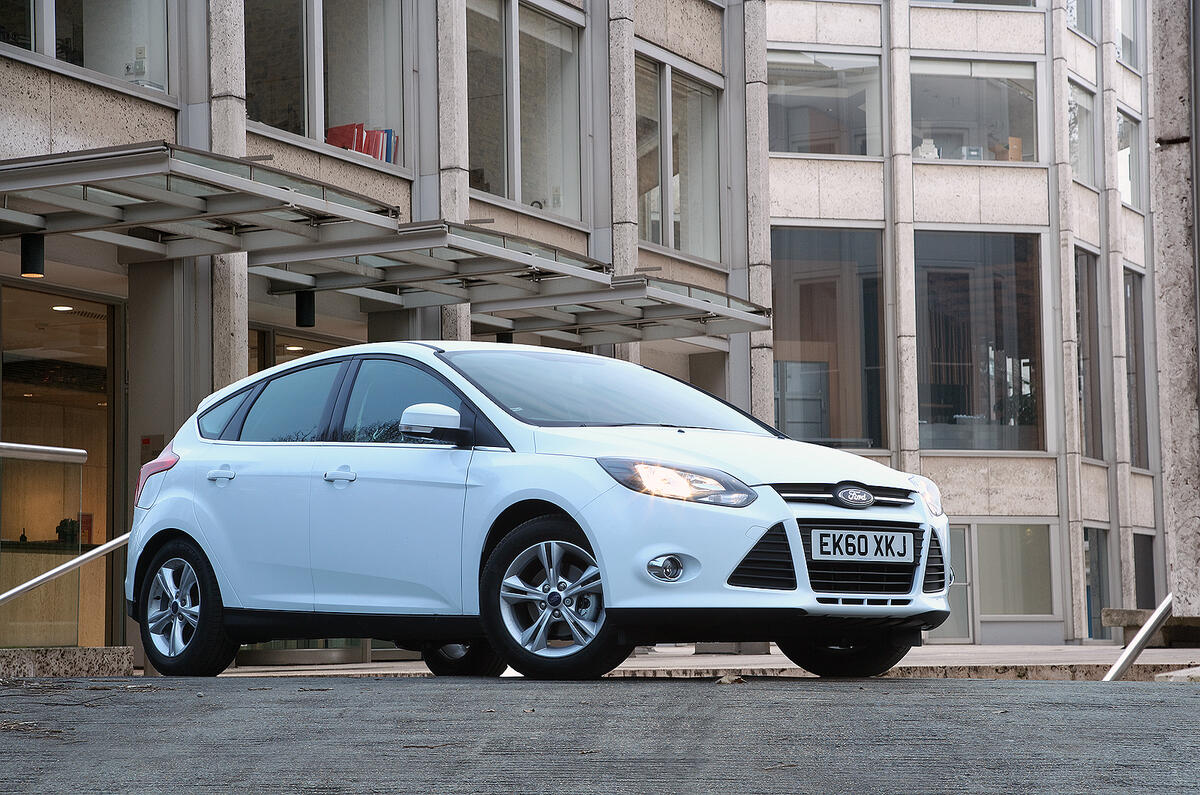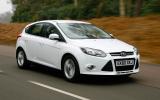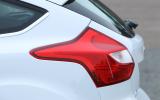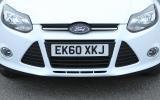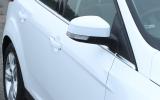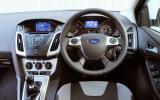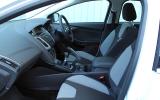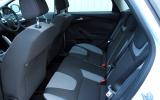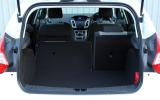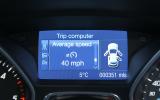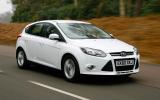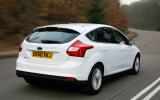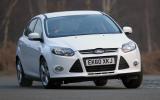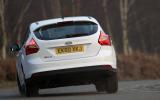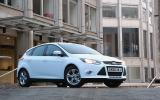When it comes to roominess, the differences between the best and worst cars in this class are best measured in units no bigger than a millimetre. So although the Ford Focus is not the most spacious car in this segment, its inadequacies are not worth a great deal of quibbling about.
If you really need to maximise rear accommodation, look elsewhere, but the Focus's cabin is competitive, as is its boot capacity of 316 litres (with a space-saver spare) to 1148 litres (with seats down and a tyre repair kit).
Fit and finish in the front of the cabin is mixed, with neat chromed touches and switches whose slickness of operation should fear nothing from Volkswagen, which contrasts with a lower-rent finish on the lower console and around the handbrake.
It straddles the flambuoyant cabin design of the Alfa Romeo Giulietta and determined functionality of the Volkswagen Golf, in a fashion not dissimilar to the Vauxhall Astra, only with rather more success and a higher perceived quality. For the life of us, though, we still cannot fathom why any manufacturer – and so many do it – mould the dashboard top with a soft-feel rubber, which you never touch, yet top the door cards with a brittle plastic that you touch every few minutes.
Ergonomically, the Focus follows much the same path: more functional than Alfa Romeo, less so than Volkswagen. Its dashboard and centre console are, pleasingly, focused towards the driver, and the quality of the digital graphics on the two displays is first rate. But the stereo and navigation controls, via a large numberpad and arrow keys, aren’t as intuitive as a good touchscreen or control-wheeled interface.
An estate version of the Focus is also offered. The Focus Estate rides on the same wheelbase as the five door, so unlike certain other estates it offers those in the rear no extra legroom than the hatchback. There is a little more headroom back there, as well as a 476-litre boot that expands to 1502 litres once you’ve flipped up the rear seat cushions and folded the seat backs (which go almost, if not quite flat).
That’s not a class-leading capacity by any means but it’s enough for all but the very biggest loads. More importantly, the load bay is just about long enough, with the seats down, to carry fridges and the like. Thanks to new inclined rear dampers and a special boot floor, the estate’s load bay is also 119mm wider than the hatchback’s.



